The University’s diverse collection of 50 medieval and renaissance manuscripts (12th-16th century) has a new online catalogue with details of each manuscript, its provenance history, published descriptions and sample images. The collection is presented in a series of galleries reflecting the growth of the collection by donation and purchase: Thomas Glazebrook Rylands manuscripts, Charles Sydney Jones manuscripts, pre-1961 accessions and post-1961 accessions. A further gallery showcasing the manuscript fragments surviving as separate leaves, reused as bindings or within printed books is in preparation. The catalogue can be found on the Special Collections & Archives website.
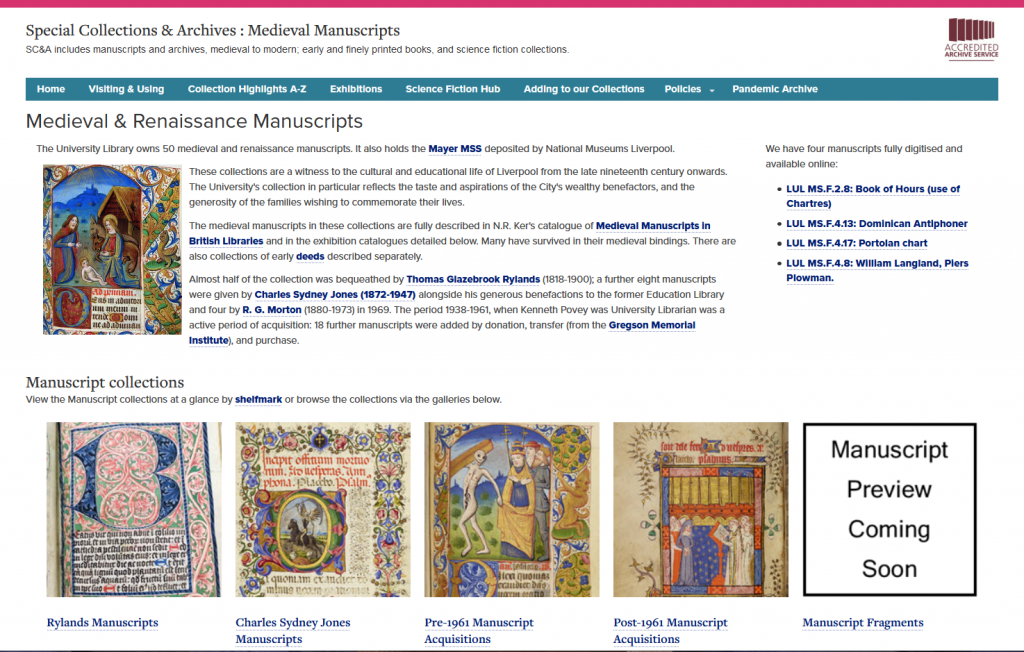
Each manuscript is described on a separate page which collates information from published descriptions with notes on exhibition history and other citations, including unpublished notes by previous cataloguers and researchers. There are links to four fully-digitised manuscripts published via the manifold app by Liverpool University Press.
Thomas Glazebrook Rylands manuscripts
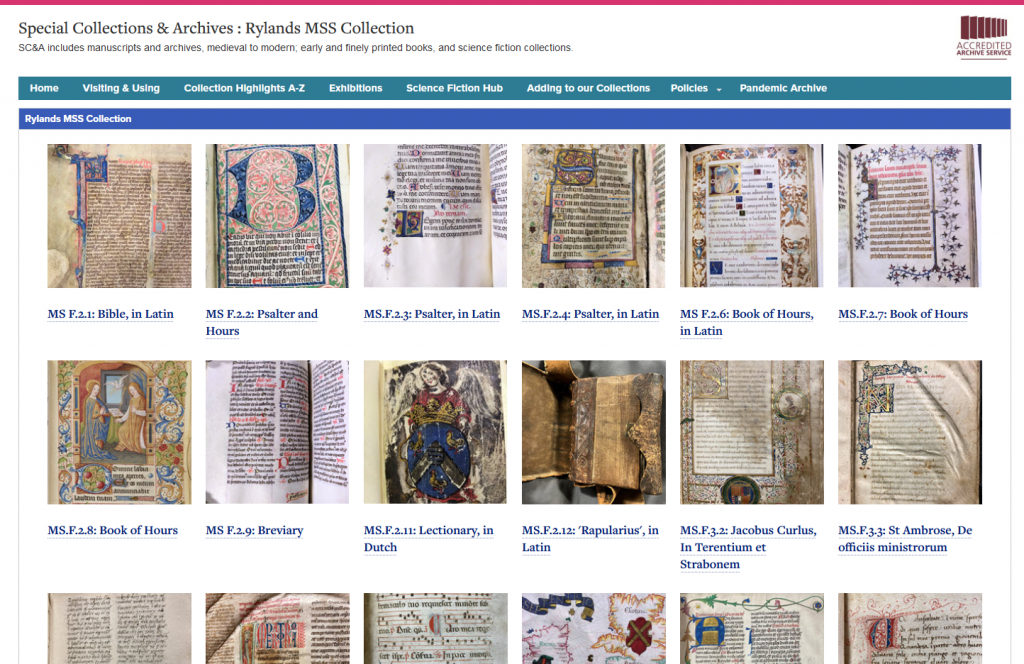
The 1900 bequest by Thomas Glazebrook Rylands (1818-1900) of 21 manuscripts, more than 160 15th- and early 16th-century books, and nearly 2000 later printed books was the single largest donation to University College Liverpool and the source of nearly half of the medieval manuscripts collection and more than one quarter of the pre-Reformation printed books now owned by the University. MS.F.2.8 and MS.F.4.17 have been fully digitised and are available on the Manifold platform.
Charles Sydney Jones manuscripts
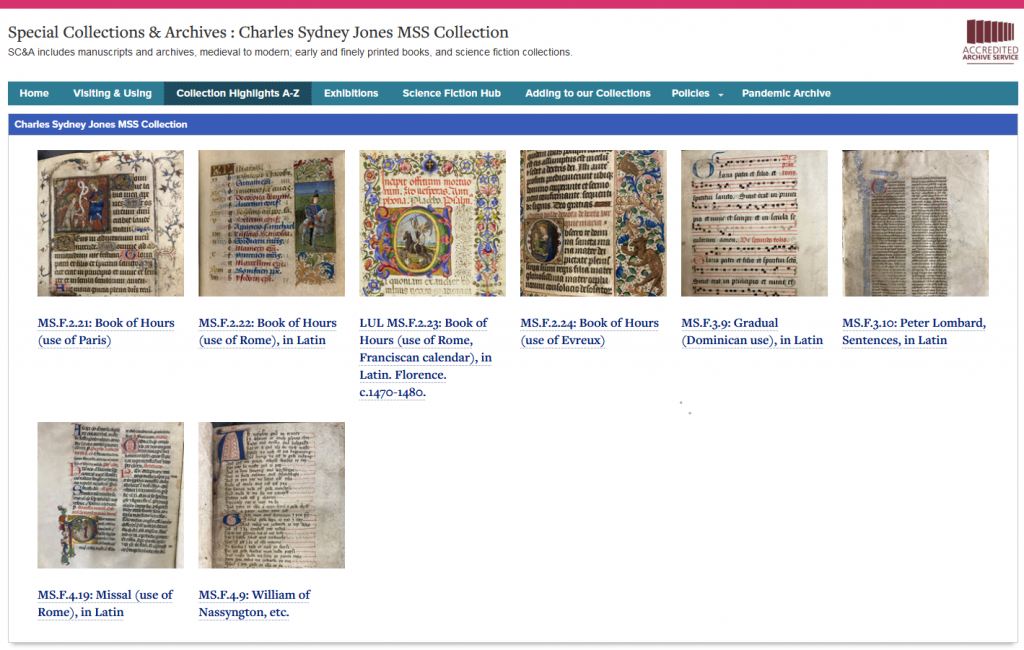
Charles Sydney Jones (1872-1947) was a major benefactor of the University, but the eight manuscripts associated with his name are not straightforwardly gifts from his own collection. His role in developing the Library’s collections, especially, like Rylands, the pre-Reformation printed collections is examined in an earlier blog post.
Manuscripts acquired pre-1961 (by donation and purchase)
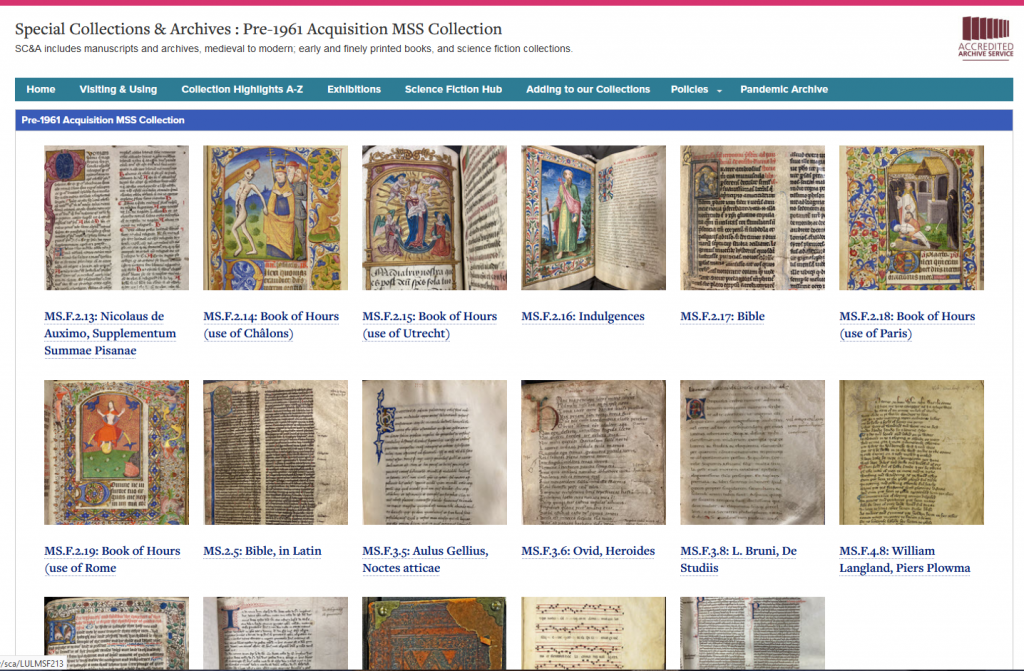
Eighteen manuscripts were acquired from 10 donors (including transfers from the Gregson Memorial Institute), or by purchase, chiefly during the librarianship of Kenneth Povey (1898-1965). MS.F.4.8 and MS.F.4.13 have been fully digitised and are available on the Manifold platform.
Manuscripts acquired post-1961 (R. G. Morton gift, 1969)
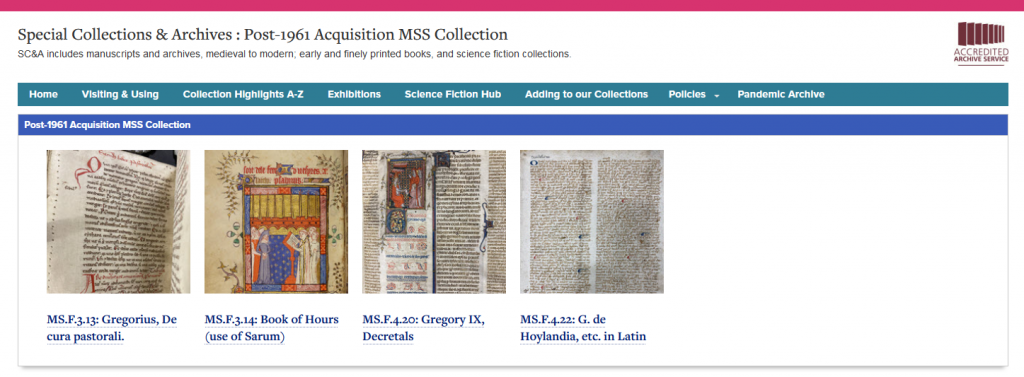
Four further manuscripts were gifted to the University by Robert George Morton (1880-1973), together with 15th- and early 16th-century books, and such significant later books as the second folio edition of Shakespeare (1632) and the first of Darwin’s Origin of the Species (1859).